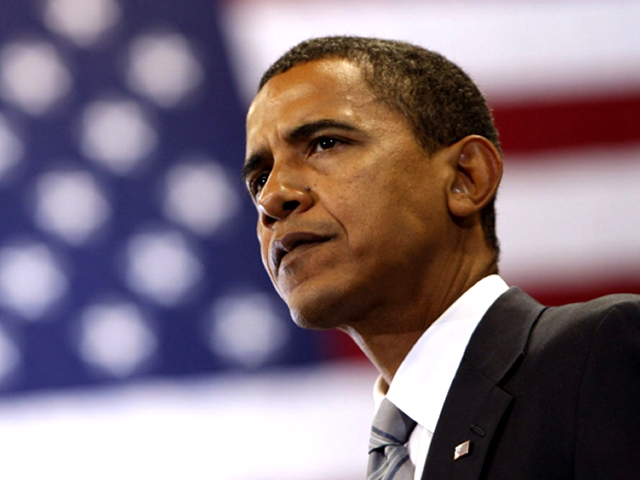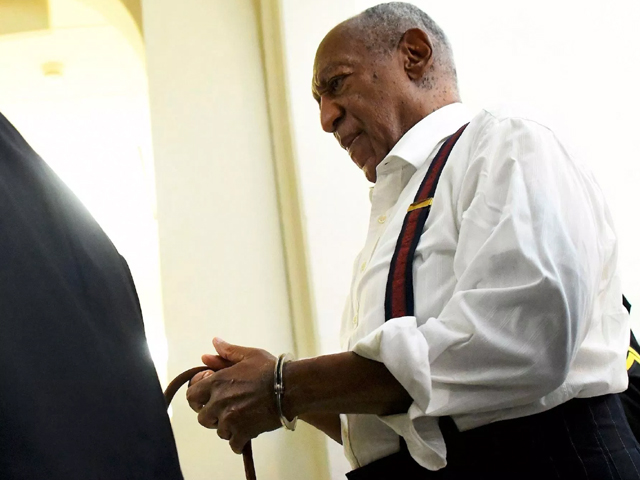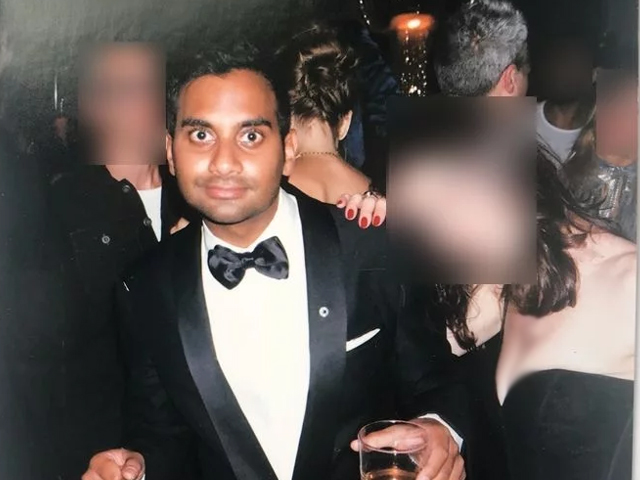
Obama spoke in front of an audience of young people at the University of Chicago where he had taught law for years before entering into politics. PHOTO: REUTERS
Barack Obama’s legacy is not of change, or even of hope
While he became an icon by being the first black president of the United States, he failed to unite a broken country.
Last week, Barack Obama made his first public appearance after stepping down from office earlier this year. Back in his home territory of Chicago, where the former president started out as a community organiser before gaining nationwide recognition as an up and coming senator, Obama spoke in front of an audience of young people at the University of Chicago where he had taught law for years before entering into politics.
The former president discussed the necessity of young people becoming involved in their communities and bridging the divide that’s cut a bloody schism across the nation. Hillary Clinton and Donald Trump were conspicuously missing from the former president’s address, possibly because the same two personalities had been missing from the political imperatives of the 40% of people who did not show up to vote.
Obama seemed aware of this discrepancy as he addressed his speech primarily to the young people onstage and in the audience, speaking of how the future belonged to them, not as empty inspirational rhetoric but a political and social fact. The theme of his address harkened back to his own days as a community organiser for a church-based organisation in Chicago where he worked to develop and empower working class communities in the city.
“I am the first to acknowledge that I did not set the world on fire,” he admitted to the laughter of the audience.
The admission smacked of irony, since Obama’s presidency was launched on visionary promises of change, which went unfulfilled. If Obama did not set the world on fire as a community organiser, he certainly failed to heal and change a country reeling from recession, the war on terror, and deep social and economic inequity as president.
But Obama’s own political career remained in the dark in anecdotal reminiscences of the past and hopeful aspirations towards the future. While Obama’s disillusionment with politics was palpable, he elegantly refrained from discussing his past eight-year-long term, the policy he implemented, and the lives he shaped and ended.
Perhaps, it’s a much-needed reprieve from centring discussions around politicians, which is only so important to people trying to get on with their lives from day-to-day.
But one couldn’t help but notice that the young people on the panel with Obama served almost as a stand-in to a younger version of him, the shadow of which was present onstage.
“I was 25-years-old [when I came to Chicago],” the former president said. “I had gotten out of college filled with idealism, and absolutely certain I was going to change the world.”
Change is a foundational theme when it comes to Obama and his significance as a political figure. Change, after all, forms the basis of the 44th president’s stated aspirations, the same soul-shattering slogan of “Change we can believe in!” which won him the presidential race in 2008.
The country needed and demanded change, depending on a saviour to deliver us from the grim draconian days of George W Bush, the fallout of the recession, the rapidly increasing poverty which became too difficult to ignore under the constant adage of “the American middle class. . .”, and which gave birth to the firecracker Occupy Movement.
But for Obama, change will only ever exist in the realm of aspiration. As soon as Obama ascended to the presidency, putting his hand over the Bible and being sworn into the most powerful office in the world, that same radical possibility for change died.
Obama’s legacy is not of change, or even of hope. It is comforting to seek deliverance in Obama now that he has been eclipsed by Trump, a veritable tyrant who was still democratically voted in by the American public, but it doesn’t change the fact that Obama’s presidency didn’t radically alter the social and political order as he had promised.
Under Obama, deportations of immigrants increased to 2.7 million and border control agents were doubled to 20,000 in 2014. Obama never closed Guantanamo Bay, the prison infamous for torturing inmates arrested without trial despite it being a major election promise in 2008. While the number of inmates has significantly decreased, many of those prisoners have just been handed off to different regimes and still remain in prison.
Similarly, Obama utilised NSEERs, the original Muslim registry developed in the Bush era, and only ended it when it was too late to help the Muslims deported and imprisoned because of the program.
And while Obama became an icon through being the first black president of the world’s largest superpower, African Americans have not fared well under his presidency with police killings of black people occurring unchecked, and policemen not even being charged, much less convicted, in the cases of the men and women they murdered.
The war in Afghanistan too has become the longest occupation with Obama indefinitely delaying the withdrawal of troops from the beleaguered country.
But more than anything else, Obama has failed to unite a broken country. It’s the only shortcoming he alluded to on the panel, yet another aspiration gone unfulfilled by the most unique and contradictory president in American history.
Of course, if mentioning Trump and Clinton’s name wasn’t allowed, then discussing Obama’s legacy was probably even less desirable for a panel dedicated to the future created by youth.
But the sins of our elders have shaped us as a generation; we do not have the luxury of a clean slate. The same generation of young people decorated on that panel were also protesting Obama on the streets, advocating for him out of a sense of loyalty against Trump, or sitting apathetically in their homes on Election Day, not caring who won in a near-decade-long term, which still failed to galvanise the American populace to civic participation.
Whatever the young people think of Obama, it’s clear what Obama thinks of the 25-year-old young man, fresh out of college, who showed up to Chicago hired as a community organiser by a group of churches on the South Side.
“[I did not] transform these communities in any significant way,” Obama confessed in 2017. “Three years later, I left for law school.”
Organising is hard, dirty work. It’s not simple, easy, or glamorous. It’s not the prestige of sitting with the former president on a panel broadcasted all over the country, even if the young people on the panel did commendable work to get there in the first place.
In fact, many of the organisers, activists, and political leaders who do the grunt work of working for their communities will never get paid the six-figure salary Obama is collecting for simply showing up to a gathering of people and speaking his mind. Grassroots community engagement is powerful; elitism and staggering speaking fees in an economically divided country is not.
But the story of the youth is still being written, even as the chapter of Obama’s life as a community organiser closes indefinitely. Whether the young people of America will commit themselves to the real hard work of organising their communities for the better remains to be seen. Until then, we only have the failure of the Obama years to learn from.
“[But] this community gave me a lot more than I was able to give in return.”
What Chicago’s diverse, working class, and overwhelmingly African American community gave Obama was the “foundation of his political career”, the importance of human connection and understanding which launched him as a politician and influenced his work as senator and president.




COMMENTS (11)
Comments are moderated and generally will be posted if they are on-topic and not abusive.
For more information, please see our Comments FAQ